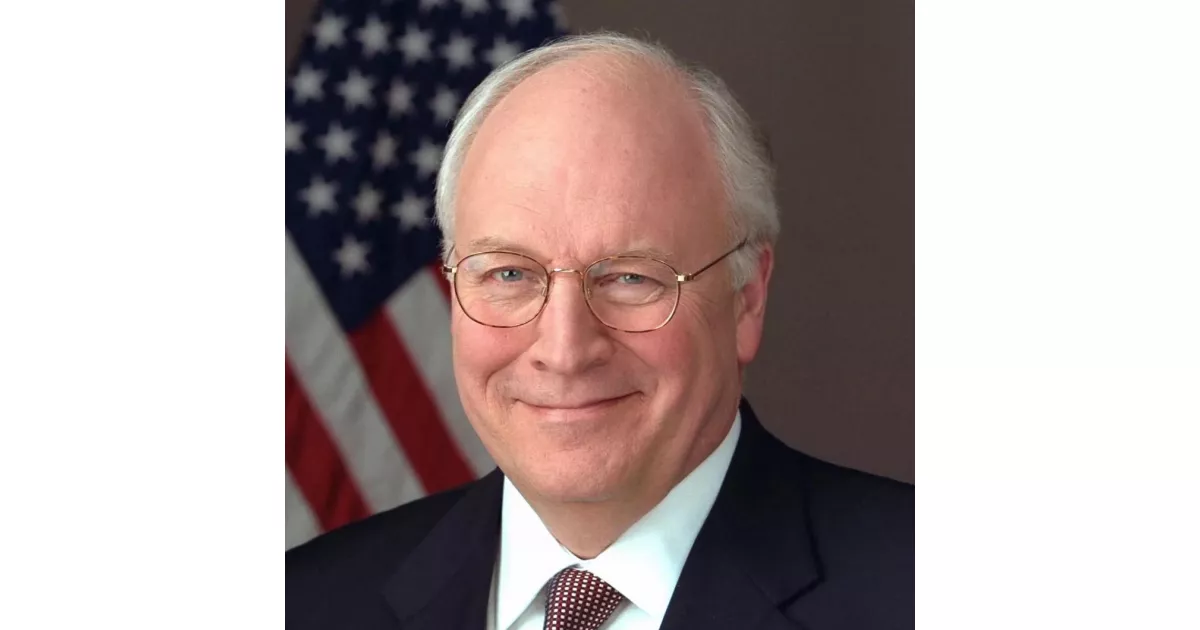Public opinion and media debates around Dick Cheney—discover key moments of controversy.
Richard Bruce Cheney served as the 46th U.S. Vice President under George W. Bush (2001-2009), a tenure noted for its unprecedented power. A Republican, Cheney's career included roles as White House Chief of Staff under Gerald Ford, U.S. Representative for Wyoming, and Secretary of Defense under George H.W. Bush. He is widely regarded as a major figure in the decision to invade Iraq. Cheney's influence and policy decisions have made him a significant and controversial figure in recent American history.
November 1962: Cheney Convicted of DWI
In November 1962, Dick Cheney was convicted of driving while intoxicated (DWI).
1963: Cheney Arrested for DWI Again
In 1963, Dick Cheney was arrested again for driving while intoxicated (DWI).
1978: Cheney initially opposed MLK holiday
In 1978, Dick Cheney initially opposed establishing a national holiday in honor of Martin Luther King Jr.
1986: Cheney votes against overriding veto of Anti-Apartheid Act
In 1986, Dick Cheney was one of 83 Representatives to vote against overriding President Reagan's veto of the Comprehensive Anti-Apartheid Act, which aimed to impose economic sanctions on South Africa.
1986: Cheney Votes Against Resolution on Nelson Mandela's Release
In 1986, Dick Cheney, along with 145 Republicans and 31 Democrats, voted against a non-binding Congressional resolution calling on the South African government to release Nelson Mandela from prison.
May 1989: Noriega nullified the election outcome
In May 1989, after Guillermo Endara had been duly elected President of Panama, Noriega nullified the election outcome, drawing intensified pressure.
1989: Cheney Discusses Deferments
In 1989, after Cheney was nominated for Secretary of Defense, he addressed his draft deferments during an interview with The Washington Post.
August 1, 1990: Iraq invades Kuwait
On August 1, 1990, Iraqi president Saddam Hussein sent Iraqi forces into Kuwait, sparking the Persian Gulf War and worldwide condemnation.
January 12, 1991: Congress authorizes military force against Iraq
On January 12, 1991, Congress authorized President Bush to use military force to enforce Iraq's compliance with UN resolutions on Kuwait.
January 15, 1991: UN demands Iraq withdraw from Kuwait
By January 15, 1991, the UN Security Council demanded that Iraq withdraw its forces from Kuwait, authorizing "all means necessary" to eject Iraq.
January 17, 1991: Operation Desert Storm begins
On January 17, 1991, the first phase of Operation Desert Storm began with an air offensive targeting Iraqi command and control centers in cities like Baghdad and Basra.
April 1992: Noriega imprisoned
In April 1992, Manuel Noriega was convicted and imprisoned on racketeering and drug trafficking charges after the U.S. invasion of Panama.
April 15, 1994: Cheney on occupying Baghdad
In an April 15, 1994, interview with C-SPAN, Cheney stated that occupying and attempting to take over Baghdad would have been a "bad idea" and would have led to a "quagmire".
1998: Halliburton merger attracts criticism
In 1998, the merger between Halliburton and Dresser Industries attracted criticism for Halliburton's lack of accounting transparency.
September 11, 2001: Start of Secret Counter-Terrorism Program
Shortly after the attacks of September 11, 2001, the counter-terrorism center at the CIA started a secret counter-terrorism program, which was later revealed in 2009 to have been withheld from Congress on direct orders from Dick Cheney.
September 21, 2001: Intelligence community finds no evidence of Saddam Hussein and Al-Qaeda
On September 21, 2001, President Bush received a classified President's Daily Brief indicating the U.S. intelligence community had no evidence linking Saddam Hussein to the September 11 attacks and that "there was scant credible evidence that Iraq had any significant collaborative ties with Al Qaeda."
July 2003: Supreme Court Ruling on NEPDG Documents
In July 2003, the Supreme Court ruled that the United States Department of Commerce must disclose NEPDG (National Energy Policy Development Group) documents. These documents contained references to companies that had agreements with the previous Iraqi government to extract Iraq's petroleum.
2003: Cheney's Staff Refuses to File Required Reports
Beginning in 2003, Dick Cheney's staff opted not to file required reports with the National Archives and Records Administration. Cheney refused to release the documents, citing his executive privilege. This led to questions from media outlets and a lawsuit from historians and open-government advocates concerning the handling of his vice-presidential records.
2004: 9/11 Commission concludes
In 2004, the 9/11 Commission concluded that there was no "collaborative relationship" between Iraq and al-Qaeda.
October 18, 2005: Report on Valerie Plame CIA Leak Scandal
On October 18, 2005, The Washington Post reported that the vice president's office was central to the investigation of the Valerie Plame CIA leak scandal. Cheney's former chief of staff, Lewis "Scooter" Libby, was one of the figures under investigation.
February 11, 2006: Cheney accidentally shoots Harry Whittington
On February 11, 2006, while quail hunting in Texas, Dick Cheney accidentally shot Harry Whittington, a 78-year-old attorney. Whittington sustained birdshot wounds to his face, neck, and chest and was treated by Secret Service agents and medical aides before being transported to a hospital.
February 2006: Report on Libby's Testimony Before Grand Jury
In February 2006, The National Journal reported that Scooter Libby had stated before a grand jury that his superiors, including Dick Cheney, had authorized him to disclose classified information to the press regarding intelligence on Iraq's weapons.
February 16, 2006: Sheriff's office releases report on the shooting
On February 16, 2006, the sheriff's office released a report on the accidental shooting of Harry Whittington by Dick Cheney. Witness statements released on February 22 indicated the shooting occurred on a clear day and Whittington was shot from a distance. Discrepancies arose regarding the actual shooting distance.
February 27, 2006: Cheney's approval rating drops after shooting incident
On February 27, 2006, polls indicated that Dick Cheney's approval rating had dropped by 5 percentage points to 18% following the accidental shooting of Harry Whittington. The incident became a subject of jokes and satire.
March 6, 2007: Libby Convicted on Four Felony Counts
On March 6, 2007, Lewis "Scooter" Libby was convicted on four felony counts for obstruction of justice, perjury, and making false statements to federal investigators. The prosecutor referred to "a cloud over the vice president" during closing arguments.
April 2007: Cheney receives honorary doctorate from BYU
In April 2007, Dick Cheney was awarded an honorary doctorate of public service by Brigham Young University. His selection as commencement speaker was controversial but the college board framed it as an invitation to the Vice President of the United States rather than a partisan figure.
June 2008: Cheney Allegedly Blocked U.S. Deal with North Korea
In June 2008, Dick Cheney allegedly attempted to block efforts by Secretary of State Condoleezza Rice to strike a controversial U.S. compromise deal with North Korea over its nuclear program.
July 2008: Allegations of Cheney's Office Deleting Climate Change Report
In July 2008, a former EPA official stated that Cheney's office had pushed significantly for large-scale deletions from a Centers for Disease Control and Prevention report on the health effects of global warming. These deletions were allegedly made to avoid regulating greenhouse gases.
July 11, 2009: CIA Withheld Information on Secret Program on Cheney's Orders
On July 11, 2009, CIA director Leon Panetta told the Senate and House intelligence committees that the CIA had withheld information about a secret counter-terrorism program from Congress for eight years on direct orders from Dick Cheney.
December 29, 2009: Cheney Criticizes Obama's National Security Policies
On December 29, 2009, Dick Cheney criticized President Barack Obama's approach to national security, particularly in response to an attempted bombing of an international passenger flight. He argued that Obama's policies made the United States less safe.
2009: Cheney's Interview with FBI Agents Made Public
In 2009, Dick Cheney's interview with FBI agents investigating the Libby case was made public. This interview contributed to the ongoing scrutiny of Cheney's involvement in the matter.
February 14, 2010: Cheney Reiterates Support of Waterboarding
On February 14, 2010, during an appearance on ABC's This Week, Dick Cheney reiterated his support of waterboarding and the torture of captured terrorist suspects. He stated that he remained a strong proponent of the enhanced interrogation program.
December 2010: Cheney named in corruption complaint
In December 2010, Cheney was named in a corruption complaint filed by the Nigerian government against Halliburton.
June 2011: Supreme Court reverses ruling in Halliburton case
In June 2011, the United States Supreme Court reversed a lower court ruling and allowed a class-action lawsuit against Halliburton to continue.
2014: Cheney continued to mislead
By 2014, Cheney continued to misleadingly claim that Saddam "had a 10-year relationship with al Qaeda".
March 2017: Cheney Calls Russian Interference an "Act of War"
In March 2017, Dick Cheney stated that Russian interference in the 2016 United States elections could be considered "an act of war."
April 2018: Libby Pardoned by President Trump
In April 2018, Lewis "Scooter" Libby was pardoned by President Donald Trump. This followed Cheney's earlier unsuccessful lobbying efforts to President George W. Bush for a full presidential pardon for Libby.
March 2019: Cheney criticizes Trump administration
In March 2019, Dick Cheney criticized the Trump administration at the American Enterprise Institute World Forum alongside Vice President Mike Pence, questioning Trump's commitment to NATO and his tendency to announce policy decisions on Twitter before consulting senior staff members.
2020: Cheney appeared at a Trump 2020 Fundraiser
In 2020, Dick Cheney appeared at a Trump 2020 fundraiser.
2020: Trump's attempt to overturn presidential election
In 2020, after the presidential election, Donald Trump attempted to overturn the results.
2022: Cheney calls Trump a "coward" in primary ad for Liz
In 2022, Dick Cheney appeared in a primary campaign ad for his daughter Liz Cheney, calling Donald Trump a "coward" and a "threat to our republic" due to his attempts to overturn the 2020 United States presidential election.
Mentioned in this timeline

Martin Luther King Jr was a pivotal leader in the...

George W Bush the rd U S President - is...
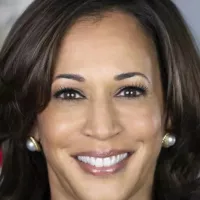
Kamala Harris is an American politician and attorney She served...

The White House located at Pennsylvania Avenue NW in Washington...
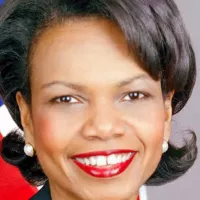
Condoleezza Rice is a prominent American diplomat and political scientist...
The Union of Soviet Socialist Republics USSR existed from to...
Trending
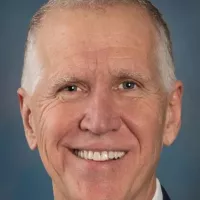
22 minutes ago North Carolina Early Voting Surges Before 2024 Primary Elections, Featuring Thom Tillis
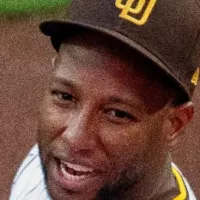
23 minutes ago Jurickson Profar Suspended 162 Games by MLB for Second PED Violation.

1 hour ago Zach Braff surprised by 'Scrubs' reboot cast's age; show returns with new heart.
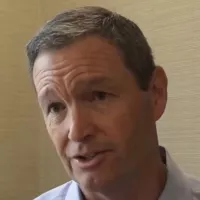
1 hour ago Mitch Barnhart, Kentucky's Athletic Director, to Retire After Long Tenure

1 hour ago Jets Secure Breece Hall with Franchise Tag: Future Plans and Contract Details

1 day ago Elisabeth Hasselbeck Returns to 'The View', Receives 'Armor of God' Gift
Popular

Jesse Jackson is an American civil rights activist politician and...

Hillary Diane Rodham Clinton is a prominent American politician lawyer...

Jim Carrey is a Canadian-American actor and comedian celebrated for...

Ken Paxton is an American politician and lawyer serving as...

XXXTentacion born Jahseh Dwayne Ricardo Onfroy was a controversial yet...

Bill Clinton served as the nd U S President from...
